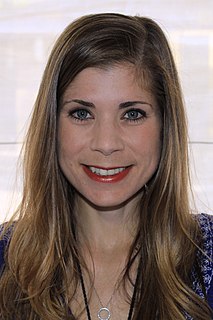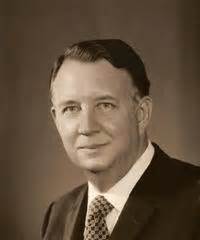A Quote by John Steinbeck
The lies we tell about our duty and our purposes, the meaningless words of science and philosophy, are walls that topple before a bewildered little ‘why’.
Related Quotes
Science can't tell us what our life means ethically. It can't tell us what we are meant to do as moral creatures. But, insofar as science can understand what we're made of, and what we're related to, the Darwinian revolution completely revised our ideas about who we are and what we're related to and how long we've been here and why we're on this Earth.
Our loyalty is due entirely to the United States. It is due to the President only and exactly to the degree in which he efficiently serves the United States. It is our duty to support him when he serves the United States well. It is our duty to oppose him when he serves it badly. This is true about Mr. Wilson now and it has been true about all our Presidents in the past. It is our duty at all times to tell the truth about the President and about every one else, save in the cases where to tell the truth at the moment would benefit the public enemy.
We cut these numerous windings in our destinies daily with our own hands, while we imagine that we are pursuing a track on the royal high road of respectability and duty, and then complain of those ways being so intricate and so dark. We stand bewildered before the mystery of our own making, and the riddles of life that we will not solve, and then accuse the great Sphinx of devouring us.
When we can't hold back, or set boundaries, on what comes from our lips, our words are in charge-not us. But we are still responsible for those words. Our words do not come from somewhere outside of us, as if we were a ventriloquist's dummy. They are the product of our hearts. Our saying, "I didn't mean that," is probably better translated, "I didn't want you to know I thought that about you." We need to take responsibility for our words. "But I tell you that men will have to give account on the day of judgment for every careless word they have spoken" (Matt. 12:36).
We who are born from above testify to the change that God has wrought in our hearts. Perhaps the best time for you to tell someone what has taken place in your life is when that person comes to you and says, 'What has happened to you? I have known you before and after. You are different, Tell me about it.' This is the best opportunity to tell someone about Christ. If they don't see a difference, all the talking in the world is meaningless.
Our conviction that the world is meaningless is due in part to the fact (discussed in a later paragraph) that the philosophy of meaningless lends itself very effectively to furthering the ends of political and erotic passion; in part to a genuine intellectual error - the error of identifying the world of science, a world from which all meaning has deliberately been excluded, with ultimate reality.
Rather than going after our walls and barriers with a sledgehammer, we pay attention to them. With gentleness and honesty, we move closer to those walls. We touch them and smell them and get to know them well. We begin a process of acknowledging our aversions and our cravings. We become familiar with the strategies and beliefs we use to build the walls: What are the stories I tell myself? What repels me and what attracts me? We start to get curious about what’s going on.
We live in an age disturbed, confused, bewildered, afraid of its own forces, in search not merely of its road but even of its direction. There are many voices of counsel, but few voices of vision; there is much excitement and feverish activity, but little concert of thoughtful purpose. We are distressed by our own ungoverned, undirected energies and do many things, but nothing long. It is our duty to find ourselves.



































